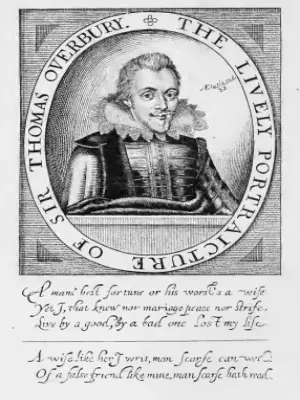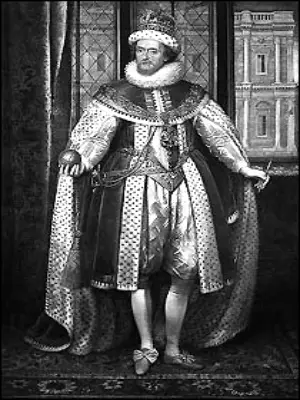The court of King James I of England was a place of intrigue, ambition, and danger. Among the many stories of power struggles and scandal, the tale of Thomas Overbury stands out as a gripping narrative of friendship, betrayal, and murder. Born in 1581 to a well-connected family, Overbury’s life took him from the halls of Oxford University to the shadowy corridors of royal power—and ultimately, to a tragic end in the Tower of London.
The Rise of Thomas Overbury and Robert Carr
Thomas Overbury’s story is inseparable from that of Robert Carr, a man whose charm and good looks catapulted him to the heights of royal favor. The two met in Edinburgh in 1601, where they formed an instant and inseparable bond. Carr, though lacking in intellect, was a charismatic aristocrat, while Overbury was sharp, ambitious, and fiercely intelligent. Together, they became a formidable pair in the court of King James I.

Carr’s rise to power began in 1606, when a riding accident left him injured. King James, known for his favoritism toward handsome young men, personally nursed Carr back to health. This marked the beginning of Carr’s meteoric ascent. He was knighted, granted titles, and eventually became the Earl of Somerset. Behind the scenes, however, it was Overbury who handled the complexities of state affairs, earning himself both influence and enemies.
The Howard Family and Frances Howard
The Howard family, one of the most powerful in England, played a pivotal role in Overbury’s downfall. Frances Howard, a young and beautiful noblewoman, was married to the Earl of Essex at the age of 13. The marriage was unhappy, and Frances soon set her sights on Robert Carr. With the help of her great-uncle, Henry Howard, Earl of Northampton, she sought to annul her marriage and marry Carr instead.

Overbury initially supported Carr’s affair with Frances but grew alarmed when Carr announced his intention to marry her. Overbury knew that aligning with the Howards would diminish his own influence. He tried to dissuade Carr, even writing a poem titled A Wife, which described the ideal qualities of a spouse—qualities Frances notably lacked. The poem included the famous line, “And all the carnal beauty of my wife, is but skin-deep,” marking the first use of the phrase “beauty is only skin deep” in English literature.
The Plot Against Overbury
Overbury’s opposition to the marriage made him a target. The Howards, led by the cunning Henry Howard, devised a plan to remove him. Initially, they considered assassination but abandoned the idea when they couldn’t secure a pardon for the killer. Instead, they orchestrated a more subtle scheme.
In 1613, Overbury was offered the position of ambassador to Muscovy (modern-day Russia). Carr, now under the Howards’ influence, advised Overbury to refuse the post. Overbury, trusting his friend, declined the offer. This decision proved fatal. Refusing a royal appointment was seen as an act of treason, and Overbury was promptly imprisoned in the Tower of London at the King’s “request.”

The Final Betrayal
While imprisoned, Overbury’s fate was sealed. Frances Howard and her allies ensured that his food was poisoned. Overbury died on September 15, 1613, but his death was only the beginning of the scandal. Two years later, rumors of foul play surfaced, leading to a sensational trial. Frances Howard and Robert Carr were accused of orchestrating Overbury’s murder. Both were found guilty, but their connections to the King spared them from execution. They were eventually pardoned and released, though their reputations were forever tarnished.
Legacy of the Overbury Scandal
The Overbury scandal exposed the dark underbelly of James I’s court, where power, favoritism, and betrayal often overshadowed justice. Overbury’s story serves as a cautionary tale about the dangers of ambition and the corrupting influence of power. His poem, A Wife, remains a literary landmark, while his tragic end continues to captivate historians and storytellers alike.
Conclusion
The tale of Thomas Overbury is a fascinating blend of romance, intrigue, and tragedy. It highlights the precarious nature of life in the royal court, where friendships could be as fleeting as favor. Overbury’s story reminds us that even the most intelligent and ambitious individuals can fall victim to the machinations of those around them. His life—and death—offer a window into a world where beauty, power, and betrayal often walked hand in hand.

